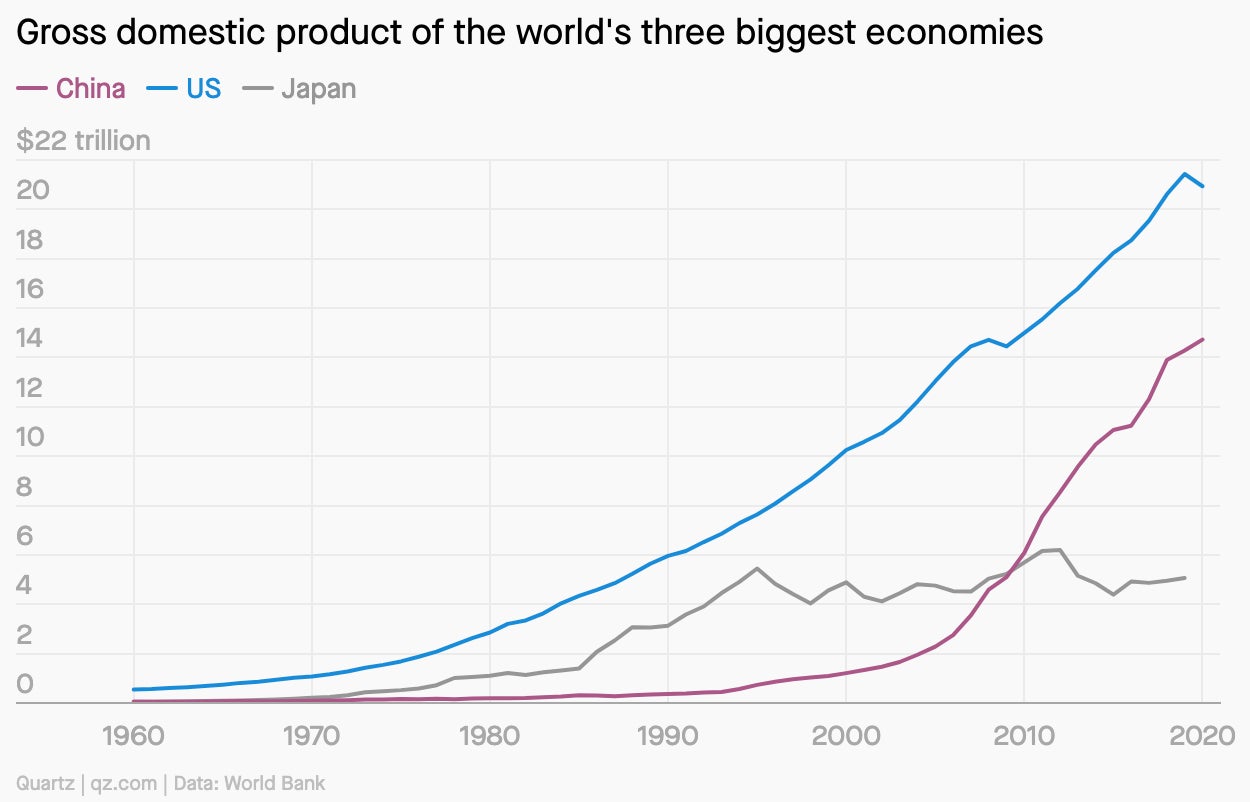The US reopens its border in November
Good morning, Quartz readers!


Good morning, Quartz readers!
Was this newsletter forwarded to you? Sign up here. Forward to the friend who enjoys TED conferences.
Here’s what you need to know
The US is reopening its border to vaccinated travelers from dozens of countries on Nov. 8. President Joe Biden will provide more detailed guidance—including information about “very limited exceptions”—by the end of October.
China’s third-quarter GDP growth slowed to 4.9%… That was down from 7.9% the previous quarter as its economy felt the drag of a real estate slowdown, a crackdown on internet firms, and an energy shortage.
…and Xi Jinping likely won’t attend COP26. The Chinese leader hasn’t left the country for nearly two years, and doesn’t plan to head to Glasgow for the climate summit.
British counterterrorism police held a suspect in the killing of British MP David Amess. Ali Harbi Ali, 25, is a British national of Somali origin—his father was an adviser to a former prime minister of Somalia.
The Hollywood strike is off. A deal agreed on Saturday means around 60,000 workers will not walk out, and productions can continue.
Squid game is worth close to $900 million to Netflix. According to Bloomberg, the hit South Korean drama generated $891.1 million in impact value, which Netflix uses to assess a show’s performance.
What to watch for
Who will run the UN’s pandemic recovery effort in Africa?
Matt Hancock, who was sacked by UK prime minister Boris Johnson following an affair with an aide, and had been criticized for his role in Britain’s own pandemic response as health secretary, was offered the job. But after a wave of criticism, partly over the appointment of a non-African, Maxine Betteridge-Moes reports, the offer was swiftly withdrawn.
So the role is still open, and whoever comes in has a lot of work to do: Less than 5% of the African population is fully vaccinated, and the economic forecast for the continent is bleak.
Sign up to the Quartz Africa Weekly Brief here for news and analysis on African business, tech, and innovation in your inbox.
The climate debate that riveted TED
An oil baron really has no chance on a TED stage with two angry climate activists, as performative as the whole set-up might be.
In Edinburgh last week, Shell CEO Ben van Beurden faced off with Engine No. 1’s Chris James, and Lauren MacDonald, who shouted at the executive and stormed off.

It’s almost impossible to be a moderator in these situations, unless you happen to be Christiana Figueres, the Costa Rican diplomat widely celebrated as the hero of the COP25 Paris agreement. When a conversation escalates as it did, Quartz’s Anne Quito asked Figueres, what can anyone do?
It’s about moving the energy—holding it where it was, deepening it, and then allowing everyone to move on. If you deny it, then you don’t harvest the richness of that moment. That was a hugely teachable moment for everyone. And it has to go from the head to the heart.
Could China’s economy collapse?
For almost half a century, China has seen one of the greatest economic transformations in human history, from collectivized farms and famine to world-leading tech companies and gleaming megacities connected by super-fast trains.
But the economy is now at another turning point.
- The government has deliberately swept the legs out from under giants like Alibaba and Didi, wiping out billions of dollars of market value
- Evergrande, the massive property developer, is on the brink of collapse
- An electricity crunch could wear down manufacturing and industry

What would a contracting Chinese economy mean, for both China and the world? Quartz’s Jane Li, Samanth Subramanian, and John Detrixhe guide you through the key challenges.
For more assessments of the global economy, read The Forecast email every week. You’ll need a membership—sign up today and get 40% off with code QZEMAIL40.
Handpicked Quartz
We messed up the Handpicked Quartz links in Friday’s edition of the Daily Brief, so here are a few extras today, with our apologies.
Surprising discoveries
Animals already practice social distancing and quarantining. Some bees are even dragged out of the nest if they’re sick.
Kids who want a Tonka truck may instead be stuck with boring soft toys. They’re easier to transport in a shipping crisis.
Or you could buy them a trench-warfare miniature. These models bring to life the horrors of the Somme.
Baseball’s arrival in Japan could be a year earlier than everyone thought. The 150th anniversary is supposed to be in 2022, but a historian argues it should be this year.
It’s common to blame a teammate for a defeat. But don’t knock them to the ground.
Our best wishes for a productive day. Send any news, comments, Tonka trucks, and vintage baseball bats to [email protected]. Get the most out of Quartz by downloading our iOS app and becoming a member. Today’s Daily Brief was brought to you by Tripti Lahiri, Lila MacLellan, and Hasit Shah.